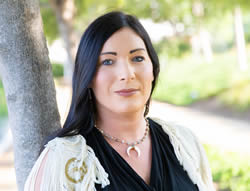Burbank, CA – June 26, 2023: Today, Cinema Without Borders announced the winner of the 2023 MOZAIK Bridging The Borders Award at Palm Springs International ShortFest Film Festival.
Two members of CWB jury, Keely Badger and Vladek Juszkiewicz, announced the MOZAIK Bridging The Borders award at ShortFest’s award ceremony on June 25th.
Here is CWB jury statement:
MOZAIK Bridging The Borders Award Jury Statement – 2023 SHORTFEST
Palm Springs International Film Festival
“Good Morning, Everyone! Welcome to the 2023 MOZAIK Bridging The Borders Award at SHORTFEST. My name is Keely Badger, I serve as the Executive Director of MOZAIK Philanthropy, a national foundation committed to democratizing philanthropy in the arts and this year’s award sponsor. I’m here with fellow jury member Vladek Juszkiewicz and we’re honored to present this award together to the winning film.
The Bridging The Borders Award celebrates courageous independent cinema, where viewers find inspiration and solidarity in the universality of human experience, and, in turn, are moved to take meaningful action to address some of the greatest global struggles of our time.
Founded over 15 years ago by Cinema Without Borders founder Bijan Tehrani, today this prestigious award is presented to an array of extraordinary films and filmmakers at dozens of festivals around the globe. These are filmmakers who each in their own right have brilliantly challenged the notion of borders that seek to differentiate and divide us, and have instead devoted their filmmaking to uniting and inspiring us through the power of story.
This year our jury received an incredibly competitive submission pool from filmmakers from all corners of the globe and all walks of life. This year we considered eight outstanding short films for the MOZAIK Bridging the Borders Award at the 29th Palm Springs International ShortFest. All films examined various aspects of borders between various countries, cultures, economic classes, and socio-political attitudes.
As usual, determining the best was difficult for the jurors, so we must grant honorary recognition to three of the eight.
Border Conversations (directed by Jonathan Brunner) presents the hopeful, but often frustrating work accomplished by Polish humanitarian aid workers who try to help refugees who have crossed the Belarussian border into officially unwelcoming Poland. If the migrants then successfully navigate a 5km exclusion zone within Poland, the women can bring them food, water, clothing, and medical aid.
I See Them Bloom (Nikita Gibalenko) depicts two Ukrainian sisters who have left their devastatingly war-torn homeland of Ukraine to find safety and welcoming young people in Germany. While one seems eager to adapt and remain in this new place with a potential future as a student, the other is distressed, almost angry at how complacent and happy their German peers seem to be.
The Kidnapping of the Bride (Sophia Mocorrea) is the story of a young couple very happily and playfully in love. Luisa, an Argentinean, and Fred travel to the groom’s home country of Germany. Their plans for a simple wedding are upended by his family’s history, culture, money, possessions, and a disturbing tradition involving the police kidnapping the bride.
Despite the high cinematic and thematic qualities of those three films, we have decided on the slightly less polished, but more timely film, as this year’s winner. This film is an eye-opening exposé of the harsh reality of modern-day enslavement in Qatar, host of the 2022 FIFA World Cup. Through conversations with a truck driver hauling sand for construction, including to the stadiums, the filmmaker discovered that guest workers have few if any rights, no place to live but in their trucks, months of unpaid wages, no time off, and grueling, hot workdays of waiting in endless, inefficient lines. With Qatar’s harsh censorship laws and an unsettling arrest of the filmmaker, it is amazing that we have the privilege of seeing any of the scenes he shot. This beautiful film that received the 2023 MOZAIK Bridging the Borders Award and a cash prize of $1500 is Director Daood Alabdulaa’s Fata Morgana.
Congratulations to our winner and all the fantastic nominees of the MOZAIK Bridging The Borders Awards. Thank you for the work you do, the stories you tell, and, importantly, how you tell them. And to the audience, I hope you’ve enjoyed a wonderful festival!”
Cinema Without Borders’ jury members to decide the 2023 winner of the MOZAIK Bridging The Borders Award were:
 Keely Badger is Executive Director of MOZAIK, a new millennial-led philanthropic organization committed to exploring and modeling new practices in philanthropy with disruptive, creative, and catalytic potential. Based in Los Angeles, CA, Keely leads the foundation’s strategic grantmaking, programs and community engagements, working with a range of nonprofit organizations in the local, national and international advocacy space.
Keely Badger is Executive Director of MOZAIK, a new millennial-led philanthropic organization committed to exploring and modeling new practices in philanthropy with disruptive, creative, and catalytic potential. Based in Los Angeles, CA, Keely leads the foundation’s strategic grantmaking, programs and community engagements, working with a range of nonprofit organizations in the local, national and international advocacy space.
As a millennial expert and advocate on international human rights and development issues,
Keely pioneers’ durable solutions for underrepresented voices, communities and causes by working to democratize philanthropy through participatory grantmaking praxis.
 Arameh Etemadi
Arameh Etemadi
Arameh Etemadi is a versatile media professional with extensive experience in television production, documentary direction, journalism, and film criticism. Since 2007, she has been recognized as a film critic for Iranian Film Magazine, where she is known for her insightful articles and film reviews. In 2014, she won the award for Best Art Interviewer from the Iranian Society of Film Critics and Writers (ISFCW).
Currently, Arameh Etemadi works as a film critic for Film-e Emrooz Magazine, and her writing has also appeared in a range of other publications, including Chelcheragh, Hamshahri Javan, Shargh Newspaper, Tehran-e Emrooz, and 24 monthly magazine. She was born and raised in Tehran, where she began her professional career as a journalist and film critic for Hamshahri and NaghshAfarinan in 2004. She holds a master’s degree in Journalism and has studied Social Communication Science in Tehran and Arameh Etemadi completed post-production courses at UCLA. In addition to her work as a film critic, Arameh Etemadi is also a talented writer, director, and live TV show producer. Her documentary on the life and works of “Mohamadreza Lotfi” was released in 2015, showcasing her skills as a director.
In 2022, Arameh Etemadi directed and produced two documentaries about cryptocurrency. Furthermore, she co-founded and served as Artistic Director of the Sheed Film Festival in Dallas, TX, in 2016 and 2017.
 Vladek Juszkiewicz
Vladek Juszkiewicz
Born in Glasgow, Poland. He graduated from the Szczecin Technical University with a degree in Engineering. While attending the University he became a member of The Szczecin Technical University Choir, serving as a President and manager of the group. His travels with the choir to 18 counties including United States where he visited the White House.
When he moved to Warsaw, he became the manager of the Polish international star singer Maryla Rodowicz.
After immigrating to the United States, he worked on 11 films with the late Paul Leder.
In 1999 he founded the Polish Film Festival Los Angeles and served as a director till 2019. Now is serving as the Festival’s Programmer.
Served on the juries of the Los Angeles Hungarian Film Festival, the Los Angeles South East European Film Festival, New York Polish Film Festival and Palm Springs International Film Festival.
Awarded by Polish Government with the Cavalier & Officer Cross of the Order of Merit of the Republic of Poland and Gloria Artis for promoting Polish culture abroad.
 Deborah Kolar
Deborah Kolar
Deborah Kolar is Managing Partner of Kean & Kolar Communications, a company formed in 2008 specializing in strategic guidance to the global screen industry.
The company’s services include awards campaigns, US and International media strategies, corporate and personal representation, film festivals and markets, events management and entertainment industry consultation. Credits range from award-winning films such as “Top Gun: Maverick,” “Babylon,” “Rocketman,” “Fences,” “The Big Short,” “Selma,” “Noah,” “Nebraska,” “Flight,” “Hugo,” “True Grit,” “The Fighter,” “How to Train Your Dragon,” “Shutter Island,” and “Up in the Air,” to documentaries and numerous, prestigious international films.
Kolar has worked on International publicity campaigns for films that include I Could Never Be Your Woman, Underworld Evolution, Aeon Flux, Rize, Leonard Cohen I’m Your Man and Jan Sverák’s award-winning Empties.
Kolar produced Andrew Baird’s science fiction neo-noir film “Zone 414” starring Guy Pearce, distributed by Saban Films and Netflix and Co-Executive Produced John Irvin’s “The Boys & Girl From County Clare” starring Colm Meaney, Bernard Hill, Andrea Corr, Shaun Evans, Charlotte Bradley and Patrick Bergin, distributed by Samuel Goldwyn Films.
Kolar is a former member and Vice-Chair of the Board of Directors of BAFTA-LA and an Executive-Producer of the British Academy Britannia Awards. Kolar was a member of the BAFTA VR Advisory Group and on the Advisory Board of Irish Screen America.
 Vera Mijojlić
Vera Mijojlić
Vera Mijojlić is a cultural producer who founded the South East European Film Festival, SEEfest (seefilmla.org) in Los Angeles in 2006. She has curated major film retrospectives for the UCLA Film Archive and Austin Film Society, and initiated a national tour of landmark short films with the Los Angeles Filmforum, which was presented at the Pacific Film Archive, Harvard Film Archive, National Gallery of Art, and MoMA. In addition to the 2018 Women in Leadership Award from the City of West Hollywood, she has received multiple recognitions from the State of California, as well as the County and City of Los Angeles.
Vera began as a cultural reporter and film critic in Sarajevo, where she was also the location manager for the N.Y.-based Jalbert Productions documentary of the historic 1984 Winter Olympic Games. She holds a degree in journalism from the University of Belgrade, and has a distinguished record in humanitarian work.
 Chale Nafus was born in Dallas during World War II, he attended public schools, spent summers on his sister’s ranch in Comanche County in the 1950s, learned Spanish from schoolmates, and dreamed of getting out of Dallas. After getting through freshman year at SMU, he worked at Texas Instruments before realizing he really needed a college education. After attending the University of Texas at Arlington (B.A., English), La Universidad Autónoma de México, and UT Austin (M.A., English/RTF), he began a long college teaching career at Texas Southmost College (Brownsville), La Universidad de Puerto Rico at Mayaguez, Borough of Manhattan Community College, Kingsborough Community College (Brooklyn), and finally Austin Community College (1973-1998). At the latter, he founded the Department of Radio-TV-Film, taught classes in film studies, and for seven years served as Chair of Humanities (Northridge Campus). Retiring in 1998, Chale spent 4 years traveling and writing before joining the staff of Austin Film Society as Director of Programming (2002-2015). He is now totally retired and happily serving on the boards of Austin Film Society and OUTsider Fest as well as the advisory committees of IndieMeme (South Asian film organization) and Cine Las Americas.
Chale Nafus was born in Dallas during World War II, he attended public schools, spent summers on his sister’s ranch in Comanche County in the 1950s, learned Spanish from schoolmates, and dreamed of getting out of Dallas. After getting through freshman year at SMU, he worked at Texas Instruments before realizing he really needed a college education. After attending the University of Texas at Arlington (B.A., English), La Universidad Autónoma de México, and UT Austin (M.A., English/RTF), he began a long college teaching career at Texas Southmost College (Brownsville), La Universidad de Puerto Rico at Mayaguez, Borough of Manhattan Community College, Kingsborough Community College (Brooklyn), and finally Austin Community College (1973-1998). At the latter, he founded the Department of Radio-TV-Film, taught classes in film studies, and for seven years served as Chair of Humanities (Northridge Campus). Retiring in 1998, Chale spent 4 years traveling and writing before joining the staff of Austin Film Society as Director of Programming (2002-2015). He is now totally retired and happily serving on the boards of Austin Film Society and OUTsider Fest as well as the advisory committees of IndieMeme (South Asian film organization) and Cine Las Americas.
 Ramin Niami
Ramin Niami
Ramin Niami is an award-winning Iranian American writer, director, and producer of feature films and documentaries. After studying film at Polytechnic of Central London (University of Westminster) and making festival favorite Michael, presented by the BFI (British Film Institute), Niami worked on films for Channel 4 and BBC.
Ramin’s filmography as director includes feature debut Somewhere in the City which features a star-studded cast including Bai Ling and Sandra Bernhard and premiered at the Seattle Film Festival, thriller Paris, shown in main competition at the Tribeca Film festival, award-winning documentary feature, Babe’s and Ricky’s Inn, and romantic comedy Shirin in Love starring Nazanin Boniadi and Riley Smith. These films released theatrically, and shown on networks like HBO, CINEMAX,TMC and Showtime.
His most recent film, psychological horror/thriller, Eye Without a Face released in US, Canada by Cinedigm, UK by101fils and Eastern Europe, and is currently available on all major platforms. As producer Ramin’s work includes Iranian New Wave director Amir Naderi’s first English language film Manhattan by Numbers, and Naderi’s latest film, Magic Lantern which both premiered in the Venice International Film Festival.
Ramin has several documentary and narrative projects currently in development.
 Bijan Tehrani
Bijan Tehrani
Founder and director of I, Immigrant and founder of Cinema Without Borders (CWB) and CineEqual is an award-winning author of children’s books and short films. Tehrani has been a passionate advocate of human rights, which he has actively pursued as a filmmaker, -historian, and -critic over the past five decades.
Tehrani initiated CineEqual, a multi-faceted program that includes I, Immigrant and is administered by the CWB Foundation, in 2018. Since its founding in 2005, CWB has interviewed and introduced over 2,000 filmmakers from around the globe, a majority of them champions of social justice and human rights.
Terry George, Academy winner and director of Hotel Rwanda, had this to say on the 10th anniversary of CWB: ”At a time when media consolidation is threatening diverse and unique voices, Cinema Without Borders provides a forum for underrepresented perspectives and stories. Now more than ever, we need to reach across cultural, political and national lines. Cinema Without Borders is part of this critical work.”
Winner of 2023 MOZAIK Bridging The Borders Award:
Fata Morgana, (Germany/Syria) by Daood Alabdulaa
Truck driver Abu Husain, like many guest workers in Qatar, spends endless hours in a self-contained world of standing, waiting, and tenaciously moving trucks on the fringes of society.
Honorary Mentions:
Border Conversations (Germany), by: Jonathan Brunner
As thousands of migrants attempt to entire the EU via Poland’s Belarusian border in November 2021, two Polish activists are confronted with the limits of humanitarian aid.
Sisters Eugenia and Nastya are warmly welcomed in Munich after fleeing Ukraine. While Nastya tries to enjoy her new life, Eugenia struggles to adjust while there‘s war at home and worries that Nastya is becoming a stranger to her.


